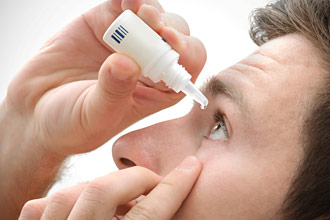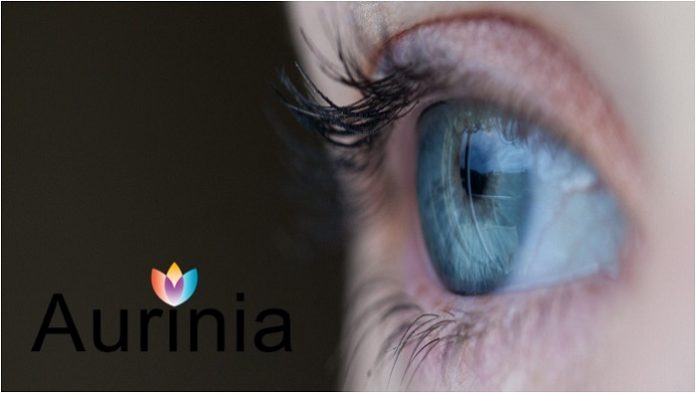Aurinia Pharmaceuticals Inc. announced plans to expand its voclosoprin renal franchise to include focal segmental glomerulosclerosis (FSGS) and minimal change disease (MCD). Additionally, Aurinia announced plans to evaluate its proprietary nanomicellar voclosporin ophthalmic solution (VOS) for the treatment of keratoconjunctivitis sicca or dry eye syndrome (DES).
The advancement of these new indications, in addition to lupus nephritis (LN), represents an expansion of the company’s strategy, pipeline and commercial opportunities.
A Phase II proof of concept clinical trial for voclosporin in FSGS and MCD patients will be initiated in the first half of 2018. FSGS and MCD affect nearly 150,000 patients globally, accounting for almost 50% of patients with Nephrotic Syndrome (NS). The prevalence of FSGS and MCD is increasing through improved diagnosis, and it has been shown that the control of proteinuria is important for long-term survival of these patients. Interim data readouts are anticipated in the second half of 2018.
Aurinia also plans to begin a Phase IIa tolerability study of VOS versus the standard of care for the treatment of DES by the second quarter of 2018, with data available in the second half of 2018. Calcineurin inhibitors are a mainstay in the treatment for DES, and the goal of this program is to develop a best-in-class treatment option.

Aurinia’s Phase III clinical study (AURORA) for the treatment of LN is on track to complete enrollment in the second half of 2018, with 113 clinical trial sites active around the globe. Additionally, under voclosporin’s fast-track designation, Aurinia intends to utilize a rolling New Drug Application (NDA) process, with the first module being submitted in the second half of 2018.
“Our clinical data in LN demonstrated that voclosporin profoundly decreased proteinuria, which is also an important disease marker for FSGS and MCD. Furthermore, voclosporin appears to demonstrate a more predictable pharmacology and an improved lipid and metabolic profile over legacy calcineurin inhibitors, which have shown efficacy in treating autoimmune disorders similar to those we are targeting,” said Neil Solomons, M.D., Chief Medical Officer of Aurinia Pharmaceuticals. “The topical formulation, VOS, has shown evidence of efficacy in our partnered canine studies and in a human Phase I study, supporting its development in DES.”
“With the AURORA trial in LN now well underway, we’re poised to enter the next phase of development for Aurinia. By leveraging our expertise and the unique profile of voclosporin to pursue these novel indications, we hope to bring new treatment options to patients where significant unmet medical need remains,” said Richard Glickman, L.L.D., CEO and Chairman of Aurinia Pharmaceuticals. “Furthermore, we believe our pipeline expansion has the potential to create significant value for shareholders.”
Aurinia believes its current financial resources are sufficient to fund all existing programs, the announced new programs, and operations into 2020.
About FSGS, MCD and NS
NS is a collection of symptoms that indicate kidney damage, including: large amounts of protein in urine; low levels of albumin and higher than normal fat and cholesterol levels in the blood, and edema. Similar to lupus nephritis, early clinical response and reduction of proteinuria is thought to be critical to long-term kidney health. Aurinia is focused specifically on FSGS, a lesion characterized by persistent scarring identified by biopsy and proteinuria and on MCD, a kidney disease in which large amounts of protein are lost in the urine. FSGS and MCD both are causes of NS and characterized by high morbidity. Currently, there are no approved therapies for FSGS and MCD in the United States and the European Union.
About DES
DES, or keratoconjunctivitis sicca, is a chronic disease in which a lack of moisture and lubrication on the eye’s surface results in irritation and inflammation of the eye. DES is a multifactorial, heterogeneous disease estimated to affect greater than 20 million people in the United States.
About LN
LN in an inflammation of the kidney caused by Systemic Lupus Erythematosus (SLE) and represents a serious progression of SLE. SLE is a chronic, complex and often disabling disorder and affects more than 500,000 people in the United States (mostly women). The disease is highly heterogeneous, affecting a wide range of organs & tissue systems. It is estimated that as many as 60 percent of all SLE patients will develop clinical LN requiring treatment. Unlike SLE, LN has straightforward disease outcomes (measuring proteinuria) where an early response correlates with long-term outcomes. In patients with LN, renal damage results in proteinuria and/or hematuria and a decrease in renal function as evidenced by reduced estimated glomerular filtration rate (eGFR), and increased serum creatinine levels. LN is debilitating and costly and if poorly controlled, LN can lead to permanent and irreversible tissue damage within the kidney, resulting in end-stage renal disease (ESRD), thus making LN a serious and potentially life-threatening condition.
About Voclosporin
Voclosporin, an investigational drug, is a novel and potentially best-in-class calcineurin inhibitor (CNI) with clinical data in over 2,400 patients across indications. Voclosporin is an immunosuppressant, with a synergistic and dual mechanism of action. By inhibiting calcineurin, voclosporin blocks IL-2 expression and T-cell mediated immune responses, and stabilizes the podocyte in the kidney. It has been shown to have a more predictable pharmacokinetic and pharmacodynamic relationship, an increase in potency, an altered metabolic profile and potential for flat dosing compared to legacy CNIs. Aurinia anticipates that upon regulatory approval, patent protection for voclosporin will be extended in the United States and certain other major markets, including Europe and Japan, until at least October 2027 under the Hatch-Waxman Act and comparable laws in other countries and until April 2028 with anticipated pediatric extension.
About VOS
VOS is an aqueous, preservative free nanomicellar solution containing 0.2% voclosporin intended for use in the treatment of DES. Studies have been completed in rabbit and dog models, and a single Phase 1 has also been completed in healthy volunteers and patients with DES. VOS has IP protection until 2031. In April 2017, Aurinia announced an agreement granting Merck Animal Health (MAH) worldwide rights to develop and commercialize (VOS) for the treatment of DES in dogs. MAH previously conducted proof of concept research in dogs suffering from DES, which affects one out of every 22 dogs.
About Aurinia
Aurinia is a clinical stage biopharmaceutical company focused on developing and commercializing therapies to treat targeted patient populations that are suffering from serious diseases with a high unmet medical need. The company is currently developing voclosporin, an investigational drug, for the treatment of LN, FSGS, MCD and DES. The company is headquartered in Victoria, BC and focuses its development efforts globally. For further information, see our website at www.auriniapharma.com.























